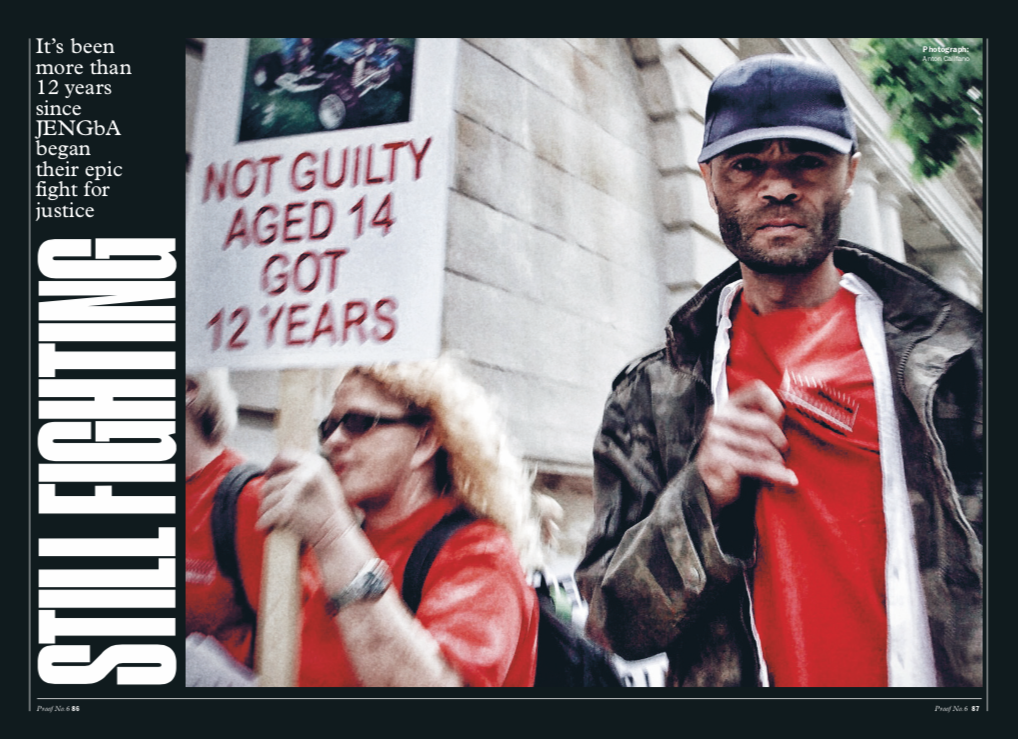The Conservatives have promised to ‘stand firmly behind’ joint enterprise prosecutions despite increasing recognition over concerns about its racial disproportionately and misapplication of law. It is the first time a political party has identified the controversial common law doctrine as an election issue and comes in the wake of a number of parliamentary efforts to limit its use.
- The pic comes from PROOF magazine, issue 5. Buy here
The Conservative manifesto, released last week and analysed on The Justice Gap, proposes a spate of measures to fix the crumbling criminal justice system, including the following: ‘We will stand firmly behind the legal doctrine of joint enterprise, meaning that those who assist in crimes, from the getaway driver to the weapon supplier, can be held accountable.’
One of the leading critics of joint enterprise, Felicity Gerry KC welcomed the pledge which, the barrister argued, seemingly conceded that the law needed reining in.
Interesting that the @Conservatives manifesto limits commitment to #jointenterprise to roles that make a significant contribution & excludes those who are alleged to “encourage” so a recognition that the current approach to the law is too broad – well done @Dannythefink and… pic.twitter.com/56AuWtP8Ef
— Dr Felicity Gerry KC (@felicitygerry) June 19, 2024
‘I am delighted that the Conservatives have in effect committed to restraining the use of joint enterprise,’ the barrister, who represented Ameen Jogee in a landmark 2016 case, told the Justice Gap. ‘Their choice of words must mean they have recognised that the law is currently over criminalising alleged secondary parties. This must be a recognition that life sentences for those who do not assist in a significant way is thoroughly unjust and that including those accused of merely encouraging works to over incarcerate people which the research shows are often children.’
Joint enterprise is used to convict those who ‘assist or encourage’ the crimes of others. Where a secondary party is involved in a principal’s crime in this way, they can be charged, convicted, and sentenced as if they were the principal. For example, a participant in a group fight which turns deadly can be prosecuted for manslaughter, even if he himself did not cause death.
The doctrine was historically deployed to police gang crime. However, it has come under fire for casting too wide a net, with defendants convicted of much more serious crimes than they set out to commit. The doctrine has also led to the disproportionate prosecution of BAME defendants, with Black people making up 30% of defendants last year.
Joint enterprise has been powerfully criticised for its racist application; a recent study highlighted the heavy use of rap music in joint enterprise prosecutions.
The tide has increasingly turned against the doctrine in recent years. Last year, Labour MP Kim Johnson proposed a Joint Enterprise (Significant Contribution) Bill, which would limit criminal liability to those who make a ‘significant contribution’ to the offence. But with Parliament in recess, the future of the bill is uncertain.







